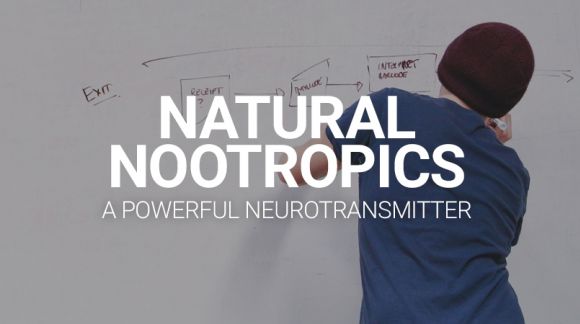Acetylcholine - a powerful neurotransmitter

Most people probably have encountered the definition of a neurotransmitter. We often hear about the role of serotonin or dopamine. Both substances are strictly connected with regulating our behaviour and mood. Dopamine, which is released in Central Nervous System stimulates Reward Centre, by which it is believed to be the biological cause of addiction. Serotonin - commonly defined as happiness hormone, whose mechanisms are used to cure mental disorders, such as depression. About the role of serotonin or dopamine we know fairly a lot, wheras less known neurotransmitter is acetylocholine having the role of cognitive functions modulator.
Acetylocholine synthesized from choline and the rest of acetic acid. It is worth adding, that acetyloholine was the first neurotransmitter discovered by scientists. The first who discovered it was physiologist Henry Dale in 1914, and its working was aproximated to the world by Austrian pharmacologist Otto Leowi. Leowi gave that substance the name vagusstoff, pointing it ability to stimulate vagus nerve. Despite prioryty of its discovery, we know definately less about it working than in the case of dopamine or serotonin.
How do neurotransmitters actually work in our organism?
The basic cells in our brain and nervous system are neurons, which communicatwe with each other by releasing neurotransmitters. Neurotransmitters are chemical compounds, whose particles transfer signals between neurons by synapses.They give informations in the brain, and also from the brain to all parts of the body – also muscle cells and cells belonging to ductless glands. Neurons producing neurotransmitters transport them on the end of villuses called axons, and nearby neuron receives them with the use of dendrites (a part of neuron reminding of a tree crown with its look). Synapse is a place where dentrites of one neuron meet with axon of another neuron.
Influence ACh on nervous system
As it has been mentioned before, acetylocholine shows abilities to stimulate vagus nerve. It is a part of our parasympathetic nervous system, responsible for the rest and proper digestion in our organism. Thanks to vagus nerve acetylocholine supports heart rythm regulation, food digestion, muscles coordination while movement, influences rest of organism, immune cells condition, organs and tissues and stem cells.
Acetylocholine – memory and learning
Not long ago did researchers start from the presumption, that ability to fix brain and create new cells, as well as connections between them is strictly limited to childhood period. The newest research in the field of neuropathy – definition determining brain capacity of fixing and creating new connections, show that the situation is different than was previously assumed. Brain does not lose ability to create new neuronal paths along with the age.
Research results show, that acetylocholine supports neuropathy process . It includes brain recovery after experienced damages, both physical, and connected with chemical substances overuse. Neuropathy is strongly connected with learning process and memory. It impacts reorganization and change of already existing connections, what is the reason of our behaviour change.
Shortage of acetylocholine in dementia diseases
Research in 1980 led on caseload with dementia disorders let create cholinergic hypothesis in dementia. According to the hypothesis, which modern drug therapy is based on, one of the main cause dementia disorders appearance, such as . Alzheimer, is perturbation of cholinergic system functioning. According to studies, some caseload with Alzheimer disorder show decreased Acetyloholine level even 90% compared to average its concentration in healthy people’s organisms. Therefore, memory loss can have a strong connection with shortage of this neurotransmitter.
Choline influence on acetylocholine production
Acetylocholine is synthesized from choline and the rest of acetic acid. Choline is organic compound, which represents precursor (substance, which appears or is created in the first stage of reaction or a process, and consequently is converted into another substance) of acetylocholine. It occurs in every plant and animal cell to provide it optimal growth and development. Choline represents crucial compound taking part in right functioning of human organism. It is especially important in pregnant women – it assists in brain development and nervous system of a womb, and moreover, it prevents it defects, alike folic acid.
Demand and choline sources
Adults should consume , at least 425mg of choline daily. Unfortunately, the most of people are not able to cover this demand only from their diet.
The main source of choline are animal products, such as yolks or offal (especially beef liver). It can be also found in wheat germ, pulses, nuts, spinach, tomatoes or oat flakes. We can also deliver choline with the use of preparations with cholinergic activity. Supplements including choline are: alpha-GPC, choline bitartrate, choline citrate, citicoline (CDP-choline). Other cholinergic compounds, which can support brain functioning are Ashwagandha, Ginko Biloba, phosphatidylserine(PS) and vitamins from B group.







